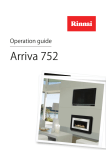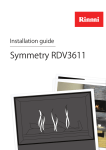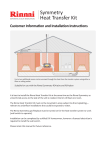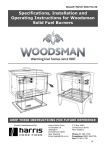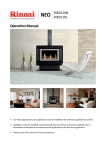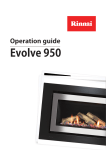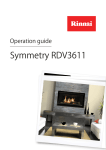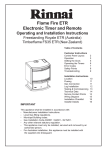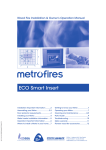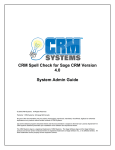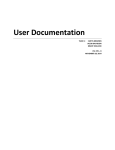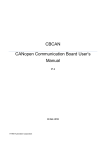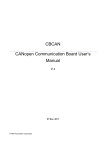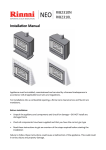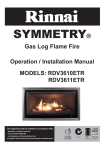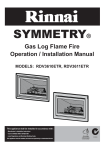Download Rinnai Symmetry RDV3610 Installation manual
Transcript
Symmetry RDV3610 Installation Manual Not intended as a fireplace insert Appliance (including flue) is installed after framing and before cladding. Rinnai strongly recommend appliance is fully tested before any cladding materials are applied. Cladding must be installed up to the flange and not over it. Any overhang will alter the performance of the appliance and cause an unsafe situation. Appliance must be installed with a Rinnai supplied flue system. Installation may require two people due to the size and weight of the appliance. Appliance must be installed, commissioned and serviced by a licensed tradesperson in accordance will all applicable local rules and regulations. Contents Before installation 3 Specification 3 Dimensions 4 Location 5 Clearances 6 Mantels, surrounds, and hearths 7 TV installation above a fireplace 8 Installation guide overview 9 Building the frame 10 Electrical connection 10 Bracket installation 11 Fixing the unit to the frame 12 Flue installation - Rinnai flue kits 13 Flue installation - Rinnai flue components 15 Flue installation - 45 degree offsets 16 Flue installation - general guidelines 17 Flue installation - vertical termination 19 Flue installation - horizontal termination 21 Gas connection 22 Flue restrictor installation 23 Log set installation 24 Test pressures 26 Flame pattern 27 Cladding 28 Fitting the frames and dress guard 29 Commissioning 30 Wiring diagram 31 WARNING Improper installation, adjustment, alteration, service or maintenance can cause property damage, personal injury or loss of life. For assistance or additional information contact Rinnai on 0800 RINNAI (0800 746 624). Before installation Unpack the appliance and components and check for damage. DO NOT install any damaged items. Check all components have been supplied and that you have the correct gas type. Read these instructions to get an overview of the steps required before starting the installation. Failure to follow these instructions could cause a malfunction of the appliance. This could result in serious injury and property damage. Specification Description • • • • Direct vent inbuilt gas fireplace (natural draft) Glass front Convection fan (top air discharge) Remote control, 7-day programmable timer Recommended for a new build installation into a false (mock) chimney. Not suitable for retrofitting into an existing masonry fireplace. Combustion Method Ceramic top pan burner Data Plate Centre front of base panel (behind the service panels) Flue Balanced flue: inner = 100 mm, outer = 170 mm Appliance must be installed with a Rinnai supplied flue system Gas Connection ½ “ BSP male flare Gas Type NG and General Product LPG Heating Area Heats up to 100 m2 Ignition Integrated sparker to pilot Input/Output Input: 19-33 MJ/h Output: 4.2-7.5 kW Noise Level 37-45 dB(A) Power Consumption High 50 W Standby <1 W Standard electrical connection is to the right side of the appliance Safety Devices Light to pilot, delayed ignition, overheat switch, electronic flame supervision (flame failure), and combustion chamber pressure relief. Temperature Control Thermostatic, temperature control range 7-32 °C Thermal Efficiency 80% Weight 60 kg Rinnai New Zealand Limited 3 RDV3610 Installation Manual: 11658-E 05-10 Dimensions (mm) 510 310 1090 715 149 Rinnai New Zealand Limited 750 775 845 500 400 995 890 1060 4 RDV3610 Installation Manual: 11658-E 05-10 Location The main points governing location are flueing and warm air distribution. The heater must not be installed where curtains or other combustible materials could come into contact with the appliance. In some cases curtains may need restraining. Refer next page for clearance details. The heater must be positioned on a flat level surface. For installations further up the wall, the heater needs to be supported, either construct a base using board or support with joists. 850 mm min. Enclosure dimensions . in m 1100 The 540 mm minimum dimension will give a 25 mm clearance (plus) from the back of the unit. m 0 54 - 11 25 m mm A 25 mm clearance is required around the unit (sides and back). Enclosure dimensions in a corner These are the minimum dimensions required if using the width, height and depth dimensions above. m m 915 mm 5 29 1 1830 mm Rinnai New Zealand Limited 5 RDV3610 Installation Manual: 11658-E 05-10 Clearances The appliance must not be installed where curtains or other combustible materials could come into contact with the heater. In some cases curtains may need restraining. The clearances listed below are minimum clearances unless otherwise stated. There are further details on mantel and surround clearances on the next page. Non-combu stible cladding 400 1000 To ceiling Non-combu stible cladding 400 400 0 1 0 0 Up-wall installations If the Symmetry is being installed up the wall and close to the ceiling, the recommended minimum clearance is 1000 mm. Non-combustible cladding Non-combustible cladding such as 9 mm Eterpan MD1 (extending at least the full width of the appliance and 400 mm in height) to be installed directly above the fire as shown. This is required to minimise the risk of scorching or fire in the event of a power failure (fan will stop running and hot air will rise directly above the unit). 1 9mm Eterpan MD (medium density) is supplied by PBS Ltd (www.pbs.co.nz). Other materials may also be suitable, please seek advice from a cladding supplier as to the correct application and specification of the material. Rinnai New Zealand Limited 6 RDV3610 Installation Manual: 11658-E 05-10 Mantels, surrounds, and hearths B - Mantel depth Min Vertical Clearance 400mm AMinimum - Mantel height from top of fireplace D - Surround projection C - Surround from side of fireplace A mantel and surround are allowed providing they are outside the minimum clearances shown below. A Mantel height from top of fireplace 400 mm minimum B Mantel depth at 400 mm (vertical clearance) 300 mm maximum For every 50 mm of added mantel depth, there must be an additional 100 mm of vertical clearance. For example; a mantel depth (B) of 350 mm will require 500 mm (A) of vertical clearance. C Surround from side of fireplace 300 mm minimum D Surround projection at 300 mm (side clearance) 50 mm maximum For every 50 mm of added surround projection, there must be an additional 50 mm of side clearance. For example; a surround projection (D) of 100 mm will require 350 mm (C) of side clearance. Hearths A hearth is not necessary but can be used for decorative purposes or protection of sensitive flooring if required. It must not obscure the front of the fire. Rinnai New Zealand Limited 7 RDV3610 Installation Manual: 11658-E 05-10 TV installation above a fireplace If installing a flat screen TV above the fire the main issue is heat. Heat from the fire and heat from the flueing components that sit behind the TV, especially if recessed. The Symmetry RDV3610 has fan that distributes warm air from the top of the appliance out into the room. As warm air is dispersed outwards as opposed to directly upwards, installation of a TV may be an option. The following are recommended minimum clearances when installing a TV directly above the Symmetry RDV3610 or into a recess. All dimensions are in mm. Directly Above Recessed 75 The 400 mm dimension is the minimum clearance required to combustibles and to a mantel. 20 Flue TV TV Flue For a TV mounted directly above the Symmetry RDV3610, the mantel must be at least the depth of the TV to deflect the heat away from the appliance. 400 400 220 Mantel Rinnai DV3610 Rinnai DV3610 It is up to the owner to check the TV installation instructions with the TV supplier to verify clearances. Some TV manufacturers have warranty conditions that state a TV is not to be installed above a fireplace. Rinnai does not accept any responsibility for damage to a TV resulting from the use of this information. Rinnai New Zealand Limited 8 RDV3610 Installation Manual: 11658-E 05-10 Installation guide overview This overview is intended to provide installation information at a high level. Further detail on each of the steps are provided in the following pages. Build frame and complete electrical connection. Install brackets, Symmetry unit and fix unit to frame. Install flue and complete gas connection. Install ducting kit (if purchased) and gas pipe. Install flue restrictor (if required), log set, test pressures and establish flame pattern. Fit cladding, ensuring that noncombustible cladding is installed above the unit (p. 7). Fit inner frame, outer frame and mesh guard (if purchased) Complete commissioning checklist. Rinnai New Zealand Limited 9 RDV3610 Installation Manual: 11658-E 05-10 Building the frame Using the dimension drawing below and the information on pages 5-8, construct a frame. A 25 mm clearance is required around the unit (sides and back). 850 mm min. IMPORTANT . in m 1100 40 m m The 540 mm minimum dimension will give a 25 mm clearance (plus) from the back of the unit. 5 - 11 25 m m Electrical connection 25 0m m The standard electrical connection is to the right side of the front of the appliance. If necessary this can be changed by an electrician to terminate on the left. The appliance must not be located immediately below a socket outlet (potential fire hazard). The connection is either direct wired or connected to a power point within the cavity. A 1500 mm power cord is supplied with a 3-pin plug. This must be connected to a dedicated earthed power point. The electric isolation switch must be accessible after the appliance has been installed. The electrical cord is not fire rated and should not come into contact with the fire. If the supply cord is damaged, it must be replaced by a licensed tradesperson. This must be a genuine replacement part available from Rinnai, part number 6765B. Rinnai New Zealand Limited 10 RDV3610 Installation Manual: 11658-E 05-10 Bracket installation Install the four metal mounting brackets supplied onto the Symmetry RDV3610. The position of the brackets will depend on the cladding thickness and type of installation (framed or frameless). The Symmetry RDV3610 can be installed with the Rinnai granite and metal frames, and also as a frameless installation. The frameless installation can have brick, rock veneer, or tiles, these sit tight up against the framing plate of the fireplace. The metal mounting bracket adjusts 20 mm to allow for the different cladding thicknesses, refer diagrams below. Rinnai granite or metal frame Bracket in forward position Backing board around framing plate Frameless brick or tile installation, note depth of brick recess Bracket in middle position Front face of backing board level with back face of framing plate Frameless brick or tile installation, note cutaway in brick for shallower brick recess Bracket in back position Front face of backing board sitting behind the framing plate Rinnai New Zealand Limited 11 RDV3610 Installation Manual: 11658-E 05-10 Fixing the unit to the frame The Symmetry RDV3610 comes pre-assembled with the burner already in position. For all installations the unit MUST BE positioned on a level surface. 1. Position the unit inside the cavity. 2. Bend and secure the two metal stand-offs supplied with the unit into position. These provide the required 150 mm minimum vertical clearance to the upper lintel. 3. Fix unit to frame with the four mounting brackets. These act as seismic constraints as well as providing the horizontal clearance to the frame. 4. Install glass front, this will help protect the unit while the remaining installation work is completed. The carton in which the Symmetry is packaged has a cardboard cut-out that is the same size as the glass frame. This can also be used to protect the unit during installation. Rinnai New Zealand Limited 12 RDV3610 Installation Manual: 11658-E 05-10 Flue installation - Rinnai flue kits Rinnai Symmetry RDV3610 flue kits have been based on the flue configurations shown. If you have a combined vertical and horizontal flue configuration you can order separate components to suit. Vertical Flue Horizontal Flue Roof cowl (high wind) Flue pipe short (1 x 300 mm) or Flue pipe long (2 x 230 mm) Wall terminal (square) 90 ° elbow Flashing collar Flashing box Horizontal flashing kit Flue pipe 600 mm Wall strap Flue pipe 1.2 m RDV3610 Flue Kit Horizontal A (short, R3660) Contains: • • • • • • Flue pipe 600 mm Elbow 90 ° Flue pipe 300 mm Wall thimble Flashing Wall terminal x x x x x x 1 1 1 1 1 1 Flue Kit Vertical 3.6 m (R3665) RDV3610 Flue Kit Horizontal B (long, R3661) Contains: Contains: • • • • • • Flue pipe 600 mm Elbow 90 ° Flue pipe 230 mm Wall thimble Flashing kit Wall terminal Rinnai New Zealand Limited x x x x x x • • • 1 1 2 1 1 1 13 Flue pipe 1.2 m x3 Wall strap x2 Roof cowl (high wind)x 1 RDV3610 Installation Manual: 11658-E 05-10 Flue installation - Rinnai flue kits Symmetry RDV3610 horizontal flue kits and dimensions The following diagram explains the components, dimensions (mm) and appropriate flue kits available for differing horizontal flue installations. Refer to the 'Distance from Appliance to the Cowl' table to calculate what flue pipe length and/or kit you may need. RDV3610 Long Horizontal Flue Kit B (R3661) RDV3610 Short Horizontal Flue Kit A (R3660) D D 325-440 310 310 435-550 90� Elbow 230 mm Pipe x 2 740 Cowl 1475 Flashing Kit 300 mm Pipe Interior wall 600 mm Pipe Base 25 540 Distance from the appliance to the cowl Horizontal Flue D Kit A 300 mm Pipe 635 750 Kit B 230 mm Pipe x 2 745 860 300 mm + 230 mm Pipe 825 940 300 mm Pipe x 2 895 1010 Rinnai New Zealand Limited • Adjust the distance by sliding the cowl on the pipe • At its maximum position, the cowl should still keep a 45 mm overlap 14 RDV3610 Installation Manual: 11658-E 05-10 Flue installation - Rinnai flue components RDV3610 Flue Elbow 90° Bend (R3643) RDV3610 Flue Elbow 45° Bend (R3642) Bends - effective length Once joined effective length reduces 35 mm: 108 • • 90°= 130 mm 45°= 73 mm 108 165 165 Used to facilitate vertical and horizontal flueing. Elbow swivels 360 ° at base. Angle not adjustable. Offsets obstructions as needed. Elbow swivels 360 ° at base. Angle not adjustable. Comes packaged as a set of two. Wall Terminal (R3650) Flue terminal required for all horizontal installations (aluminium). RDV3610 Flue Pipes Roof Cowl (R3651) Flue terminal required for all vertical installations (aluminium). Flue Pipes - effective length Horizontal Flashing Kit (R3646) Flashing components used to join internal flue to outside flue terminal (to provide a weathertight seal) in horizontal flue installations. RDV3610 Flue Extension Once joined nominal length reduces 35 mm: 150 230 300 450 mm mm mm mm (R3630) (R3631) (R3632) (R3633) 600 mm (R3634) 900 mm (R3635) 1.2 m (R3636) • • • • • • • Nominal 150 mm 230 mm 300 mm 450 mm 600 mm 900 mm 1200 mm = = = = = = = Effective 117 mm 194 mm 270 mm 422 mm 575 mm 879 mm 1184 mm Pipe used to construct horizontal and vertical flueing (cannot be cut to size). Effective lengths are variable (from 35 mm) due to rounding of the flue pipe dimensions. Wall Strap (adjustable, R3647) Flue Elbow Strap (R3644) Used in interior/exterior installations to add lateral support to the flue. Provides a 50-200 mm clearance to combustible walls. Rinnai New Zealand Limited Used to prevent excessive weight on the flue elbow. 15 75-175 mm (R3638) 75-360 mm (R3639) Used for extending straight lengths of flue. Available in two lengths (extending to 175 or 360 mm) Flue Restrictor (supplied, 11516) For vertical installations greater than 2.3 m. Maintains efficiency by restricting air flow through the unit as flue length (flue pull) increases. RDV3610 Installation Manual: 11658-E 05-10 Flue installation - 45 degree offsets Flue pipe (length and code) Offset (mm) Rise (mm) None (bend to bend) N/A 124 340 150 mm R3630 203 419 230 mm R3631 257 473 300 mm R3632 311 527 450 mm R3633 417 633 600 mm R3684 524 740 1.2 m R3686 949 1165 Rinnai New Zealand Limited 16 RDV3610 Installation Manual: 11658-E 05-10 Flue installation - general guidelines Every gas fireplace requires a flue system that will draw effectively and clear flue products safely under all potential wind and climatic conditions. It is the responsibility of the installer to ensure that the appliance is provided with an effective flue. Some guidelines to assist with flue design are listed below. These should be viewed in conjunction with the installation instructions provided by the flue manufacturer (included with all Rinnai Symmetry flue cowls) and with the Horizontal Flue Flashing Kit instruction sheet. These must be read and modified as necessary with reference to the particular installation The Rinnai Symmetry RDV3610 must be installed with an approved Rinnai flue system. Approved flue components for this appliance are detailed in this manual. Clearance to combustibles Inner flue 100 mm Flue Outer flue 170 mm Minimum clearance from inner flue to combustible material must be greater than 50 mm (equates to 15 mm from outer flue). Combustible Material (must be greater than 50 mm from inner flue) Flashings A wall thimble and flashing kit is supplied with the Horizontal Through The Wall Kit. For all other flueing configurations flashings must be specified. Flue cowl clearance To ensure products of combustion are cleared, adequate clearance for the building is required and the below guideline is recommended. Flue cowl should have a 500 mm clearance from any part of the building. This also applies to steeped and pitched roofs which should be clear of the ridge line as shown below. Lesser clearances may provide perfectly adequate flue systems depending on the installation. Minimum clearances are shown in NZS 5261. Rinnai New Zealand Limited 17 RDV3610 Installation Manual: 11658-E 05-10 Flue installation - general guidelines Flue terminal locations Must be compliant with ‘Clearances Required for Flue Terminals’ from NZS 5261 2003. Flue is not to terminate under floors or in a roof space. Minimum and maximum horizontal flue length Each flueing configuration is subject to flueing restrictions, refer to following pages for further detail. General points governing flue configurations are: • • • • minimum vertical flue before any offsets maximum horizontal length for vertical installations greater than 2.3 m bends 600 mm 3.5 m flue restrictor is required to be fitted maximum of two Self-supporting flue The weight of the flue system should not be supported by the appliance—it should be selfsupporting. Supporting the flue is usually completed during the framing stage with flue supports or straps within the cavity. Wall straps have been included in the Rinnai Vertical Flue Kit to assist with this. Elbow straps are also available as a separate component to prevent excess weight on the flue elbow. Shared flues Gas appliances must not be connected to a chimney or flue serving a separate fuel burning appliance. Rinnai New Zealand Limited 18 RDV3610 Installation Manual: 11658-E 05-10 Flue installation - vertical termination For vertical flue terminations with or without 45 ° bends (maximum of two). The shaded sections determine the position of the flue restrictor. Max. 5.4 m Restrictor position # 2 4.2 m Restrictor position # 3 3.0 m Restrictor position # 4 1.8 m No restrictor Min. 0.6 m If bend is less than 45 O, the installation is deemed a vertical termination with 90 O bends (refer next page) Max. 1.8 m Rinnai New Zealand Limited 19 RDV3610 Installation Manual: 11658-E 05-10 Flue installation - vertical termination For vertical flue terminations with two 90 ° bends (maximum of two). The shaded sections determine the position of the flue restrictor. Horizontal runs of flue pipe must be supported to prevent any downward sags. Horizontal pipe sections should be supported at least every 1.2 m. Wall straps can be used for this purpose. The horizontal run of flue pipe must have a 20 mm rise for every 1 m of run towards the termination. Never allow the flue pipe to run downward. A downward slope can trap heat and become a fire hazard. Max. 5.4m Restrictor position # 2 4.2 m Restrictor position # 3 3.0 m Restrictor position # 4 1.8 m No restrictor Min. 0.6 m after bend Min. 0.6 m Max. 3.5 m Rinnai New Zealand Limited 20 RDV3610 Installation Manual: 11658-E 05-10 Flue installation - horizontal termination For horizontal flue terminations with a 90 ° bend. The shaded sections determine the position of the flue restrictor. Horizontal runs of flue pipe must be supported to prevent any downward sags. Horizontal pipe sections should be supported at least every 1.2 m. Wall straps can be used for this purpose. The horizontal run of flue pipe must have a 20 mm rise for every 1 m of run towards the termination. Never allow the flue pipe to run downward. A downward slope can trap heat and become a fire hazard. Max. 1.2 m Example Max. 5.4 m Vertical flue: Max. horizontal flue: Max . Ho rizo nta l =(6 Restrictor position # 3 .03- Ver tica 5.0 m (6.03-5.0) ÷ 0.52 2.0 m l)/0 .52 4.2 m Restrictor position # 4 2.4 m No restrictor l= ta zon ori H ax. M Ve 2 69 /0. al rtic Example Vertical flue: Max. horizontal flue: 2.0 m (2 ÷ 0.692) 2.9 m Min. 0.6 m Min. 0.3 m Rinnai New Zealand Limited Max. 3.5 m Max. 0.9 m 21 RDV3610 Installation Manual: 11658-E 05-10 Gas connection The gas connection from the control valve is a ½ " BSP male flare fitting. This connects straight into the gas control on the lower left hand side of the appliance. Gas pipe sizing must consider the gas input to this appliance as well as all other gas appliances in the premises. 60 CL 440 190 Flared Union Connection Access To access the gas connection remove the upper and lower bracket (also called the service access panels). The brackets can be removed by undoing the screws shown below at each end. Gas Control Rinnai New Zealand Limited 22 RDV3610 Installation Manual: 11658-E 05-10 Flue restrictor installation The flue restrictor is required to be fitted in installations where the flue length exceeds 2.3 m. It works by limiting the amount of air required for combustion. The higher the flue the more the air is circulated, this can affect the performance of the fire. Different flue configurations require a different positioning of the flue restrictor, please refer to the Flue installation pages to determine what setting is required. The different hole positions are shown below and also stamped on the restrictor. 4 3 2 1 4 3 2 1 Before you can install the flue restrictor you need to remove the pilot shield and carefully lift the burner bed out of the unit. Attach the flue restrictor as shown by securing with the screws provided. 3 Rinnai New Zealand Limited 3 2 23 2 RDV3610 Installation Manual: 11658-E 05-10 Log set installation The log set (burn media) is packaged separately and consists of five log pieces and three moulded rocks. Handle the log set with care to avoid chipping. It is important you position the pieces in order as shown below as incorrect placement can create carbon build up and affect performance. For video instruction on Rinnai Symmetry log positioning, refer to the following YouTube video: http://www.youtube.com/watch?v=xdxoKomYj9k Malfunctioning due to improper log/rock placement is not covered under warranty. The unit must never be used with broken logs and should not be mixed with other burn media (except Rinnai Rockwool). Final Log Set Layout Top Log Front Middle Left Log Front Middle Left Log Front Base Left Log (with moulded rock) Front Base Right Log Front Right Rocks Front Left Rock Fit Front Base Right Log into position on the far right of the burner base. Carefully remove log set from packaging and fit Front Base Left Log in created gap. It should only fit one way. Rinnai New Zealand Limited 24 RDV3610 Installation Manual: 11658-E 05-10 Log set installation Fit Front Middle Left Log into back flat section of the burner and slot on top of Front Base Left Log. Place Front Middle Right Log into the U-shaped groove. Place the Top Log onto the recessed sections of the Left and Right Middle Logs. Ensure the middle elbow section rests on the top of the Bottom Log. Position two of the rocks over the screw holes on the burner bed and place the remaining kidney shaped rock on top as shown. Rinnai New Zealand Limited 25 RDV3610 Installation Manual: 11658-E 05-10 Test pressures 1. Turn on the gas and power supply to the unit. 2. Refer to the data plate for applicable test point pressures. 3. The test point is on the gas control valve. Using a suitable screw driver loosen the captivated test point screw and attach a manometer. 4. Using the manual control switch (on the appliance), turn the unit on and switch to the HIGH setting and adjust the pressure as necessary. 5. Disconnect the solenoid (yellow wire). This will ensure the unit is on the lowest setting and set the appliance to the LOW setting. Adjust the pressure as necessary. Reconnect the solenoid. Outlet test point Inlet test point Adjust test point pressures as necessary using a screwdriver and spanner as shown below Cap Gas outlet High pressure adjusting screw Low pressure adjusting screw 6. After checking pressures, turn the unit off, remove manometer and replace test point screw. 7. Turn the heater on and off a few times to check ignition. 8. When you are satisfied that the heater is working correctly, reassemble and start the appliance to check the flame pattern (refer next page). Rinnai New Zealand Limited 26 RDV3610 Installation Manual: 11658-E 05-10 Flame pattern It may take approximately two hours of operation for the logs to achieve their full flame pattern and glow. During the initial burning in period, some smoke and smell may be experienced. The appliance should be run on the high setting in a well ventilated room until these dissipate. It is important to check the flame pattern during this time. Abnormal flame pattern Abnormal flame performance and/or pattern can indicate a problem with the fire, such as blocked gas injectors or artificial logs/burn media have shifted during installation. There are some warning signs that could indicate a problem. • Unusual smell from the appliance • Continued difficulty or delay in establishing a flame • Flame appears either very short or very long Normal Abnormal • Flame only burns part way across the burner • Severe soot building up on the inside of the glass door It is the responsibility of the installer to check that under normal conditions of the appliance, all flue gases are exhausted to the outside atmosphere and that there are no spillage of combustion gases into the room. If the appliance cannot be made to perform correctly please contact Rinnai. Rinnai New Zealand Limited 27 RDV3610 Installation Manual: 11658-E 05-10 Cladding Non-combustible cladding must be installed directly above the fire as shown on page 6. When installing cladding ensure it is installed up to the flange and not over it, any overhang will affect the performance of the appliance and cause an unsafe situation. Cladding should be installed hard up against the flange and not over it. Rinnai New Zealand Limited 28 RDV3610 Installation Manual: 11658-E 05-10 Fitting the frames and dress guard WARNING Before fitting the frames and/or dress guard ensure the glass front is secured in place. It is critical when fitting the glass front that you double check that it is not scratched or damaged in any way and that you have checked the gasket. Outer Frame Inner Frame Dress Guard Inner frame Hook over the glass and secure in place on the two large lower magnets on the front assembly. Outer frame Screw into position with the fours screws provided. If you have a granite outer frame, refer to separate installation instructions. Mesh dress guard No fixings required, this inserts flush into the inner frame by hooking onto the top and then pushing in. Rinnai New Zealand Limited 29 RDV3610 Installation Manual: 11658-E 05-10 Commissioning Complete the installation and commissioning checklist in the customer operation manual and make sure you leave the manual with the customer. Explain to the customer about the use and care of the unit and they understand the instructions and operation of the appliance. If operating without a dress guard advise the customer of the safety instructions to prevent the risk of injury. Rinnai New Zealand Limited 30 RDV3610 Installation Manual: 11658-E 05-10 Wiring diagram (11652-A) AC 230V -240V 50 Hz ACTIVE NEUTRAL OH SWITCH (BROWN) (GREEN) IGNITION PACK 579 DBC SIT Sparker Earth Modulating Coil (Gas Control) (BROWN) FLAME ROD TEST CONNECTION (BROWNN) 1 2 Flame Rod Sparker (YELLOW) (GREY) (YELLOW) (GREY) (BLACK) (BLUE) High Speed Medium Speed CONTROL PANEL RECEIVER CABLE CAT 5 FAN MOTOR (WHITE) (GRN/YLW) (BLACK) FUSE 3A 250V (BROWN) CONTROL UNIT (BROWN) 1 (BLUE) (BROWN) (BLUE) (RED) 2 (BLACK) 12 11 10 9 8 7 6 5 4 3 2 1 (GRN/YLW) 1 2 (RED) RDV3610 Installation Manual: 11658-E 05-10 31 Rinnai New Zealand Limited (BROWN) (YELLOW) (RED) Consumers: Installers: 0800 RINNAI (746 624) 0800 TO RINNAI (86 746 624) Address: 105 Pavilion Drive, Mangere, Auckland PO Box 53177, Auckland Airport, Manukau 2150 Phone: Fax: (09) 257 3800 (09) 257 3899 Email: Website: [email protected] www.rinnai.co.nz All Rinnai appliances meet or exceed the safety standards required by New Zealand gas and electrical regulations. Rinnai is constantly improving its products and as such information and specifications are subject to change or variation without notice.

































